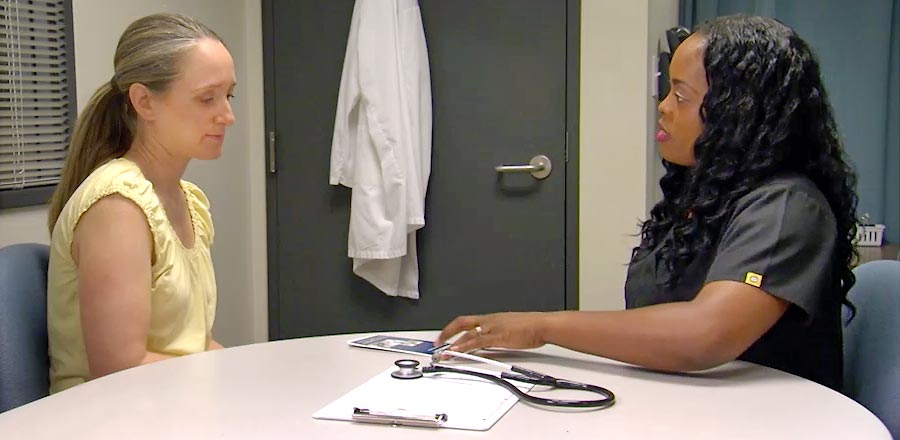 Get the credentials you need to help your patients quit.
Get the credentials you need to help your patients quit.
This Wednesday, the nation will once again mark Kick Butts Day, and as the lung health experts in their facilities, respiratory therapists are uniquely positioned to help patients do just that. But very few RT educational programs provide the in-depth knowledge needed to effectively engage patients in the quit tobacco discussion.
In the following interview, two North Dakota members — Mike Myers, Mmgt, RRT, RPFT, CTTS, COPD coordinator at Sanford Health in Bismarck, and Nicole Brien, BS, RRT, CTTS, lead disease management educator at Altru Health System in Grand Forks — explain why they decided to earn the Certified Tobacco Treatment Specialist (CTTS) credential and how the training they received is facilitating their efforts to work with patients who want to quit.
How are you involved in tobacco cessation and when and why did you decide to pursue the CTTS credential?
Mike Myers: As a new COPD educator, I use my CTTS credential on an almost daily basis. I received my training soon after my position started and do not see how one can do any type of respiratory education without tobacco cessation training.
Nicole Brien: Around the fall of 2014 a coworker of mine became the first COPD educator in our department. She was going to the CTTS program at the Mayo Hospital in Rochester, and the opportunity for me to go too became available, so I went with her. About six months later I became the COPD educator in our department, and shortly after I started my new position my manager and I decided that we needed to develop a Disease Management Program.
It was then that I realized how important having this credential would be to my career and to my patients. Not only do we do all the COPD education, but now we do all the tobacco cessation education for our inpatient population. Prior to this change it was the nurse and respiratory therapist’s responsibility to ask the patient if they wanted information on quitting, which more times than not would get a “no” response. Since this change we have dramatically increased the number of patients that want to enroll in a “quitline” and want NRT at discharge. I truly believe this is due to that fact that everyone in Disease Management has the CTTS.
How has having this credential facilitated your ability to work in the tobacco cessation area, either inside your organization or out?
Mike Myers: We all know inherently as respiratory therapists that smoking is harmful and that our patients should quit, but sometimes we don’t know how to move that conversation along. Being armed with data and, more importantly, the motivational interviewing training that is received, you learn how to motivate the patients so they make the decision to quit themselves instead of doing it because we tell them that it’s bad for their health.
Nicole Brien: It has given me the confidence and knowledge I needed to help my patients with their journey to a tobacco free life. I think that the motivational interviewing aspect of the CTTS is the most vital part of this program. There really is a right way and a wrong way to approach patients on this topic, and when you are given the right tools it not only makes it easier for us to help our patients open up to the possibility of this life change, but it also gives our patients that trustworthy atmosphere that is needed to help them open up about their stressors/triggers, their feelings about trying to quit, and their worries of failing.
Would you recommend this credential to other therapists interested in getting more involved with tobacco cessation? Why or why not?
Mike Myers: I would highly recommend CTTS training to anyone doing any type of respiratory education. I don’t see how one can effectively motivate someone to quit without it. I would also add that it takes practice to master the techniques that are taught in the training. You need to practice the motivational interviewing techniques as often as possible.
Nicole Brien: I definitely would recommend getting this credential. Again, when you have the proper tools and knowledge under your belt it makes what you need to accomplish that much easier. I think anyone who is going to be working in health care should have some sort of motivational interviewing training, but if you are going to be directly working with patients that smoke and need to quit, having this credential will make educating these patients go so much more smoothly. This really was one of the best things that I have done for my career and I highly recommend it.
Want to network with other AARC members who are involved in tobacco cessation? Discussions are going on right now on our Tobacco-Free Lifestyle Roundtable!





